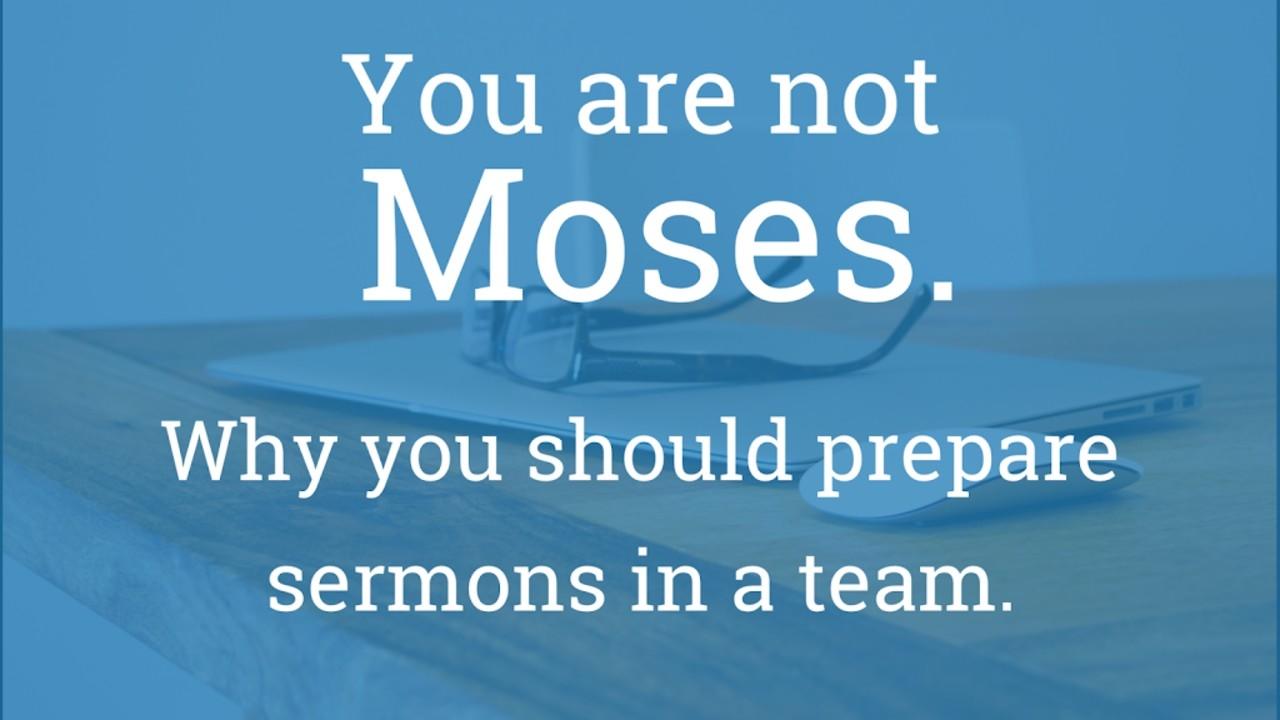Why You Should Prepare Sermons in a Team (Part 3 of 3)

This is the last post of a three part series on the benefits of preparing sermons in a team. Part one discussed the different reasons why a lot of preachers prepare their sermons solo. Part two examined what happens as a result of preparing sermons alone.
For this final post I want to give you some practical tools for how to get started preparing your sermons in a team. This practice changed everything about the way I prepare sermons and enriched my preaching experience.
It’s important to recognize what constitutes a team. For the purposes of sermon prep, a team could be a structured group that meets regularly or it could be an unstructured collection of people that you seek out to collaborate with. The point is that you are intentionally broadening the preparation process to more than just you.
Our preaching team is made up of our pastors who preach in the main services, the service programming coordinator, other staff members and a note keeper. We meet each week to do four things:
1. Pray. The most important part about our team is that we continually pray for our upcoming services, preaching series and sermons to be effective and powerful. We recognize that no amount of collaborative planning can replace God’s movement among his people. So we pray for him to use us.
2. Think and create together. We use the time as an opportunity to bounce ideas around and think together about what kind of teaching content the church needs in the coming weeks/months.
3. Do long-range sermon series planning. We look at the coming months and plan the teaching series we’re going to do. Sometimes this requires a separate meeting to plan further in advance.
4. Do short-term sermon planning. We typically look at three sermons at a time: the upcoming week and the two weeks that follow. On weeks that I preach I present the basic flow of my content to the rest of the team. As a team we try to boil down the objective and desired response of the next three sermons. This ensures that our goals for the service align with the thrust of the message. It also gives us something to evaluate the following week to see if we hit our target.
When the meeting is over collaboration continues throughout the week informally. I also seek input from a variety of different people to make sure that my content makes sense and communicates what I intend.
How to get started
Structured team. You may be ready to launch a structured team that meets regularly. One great place to start is with the people who are already involved in leading your services – maybe your worship leader, another staff member, or a lay person that is invested in your church. You may be surprised to find that people are willing to contribute if you let them into the mysterious world of sermon prep.
Unstructured collaboration. You don’t need a structured team to begin preparing collaboratively; you can take steps toward it now. Think of your sermon in terms of phases and consider what kind of input you can get each step along the way:
- Before study begins. Discuss your passage or topic with others. Write down what ideas come to mind from your discussion.
- Once you have begun your study. Take what you have from your initial stages of study and bounce it around. Talk to others to see what they have learned from that passage.
- After you have a rough outline. Walk someone through your outline and ask for feedback. As you say it out loud to someone else you’ll begin to solidify your thoughts.
- After your sermon, get feedback to help prepare for next one. Ask people for meaningful feedback. If it was good what made it good? If it was bad what made it bad?
My preaching has benefited tremendously from this method. My sermon gets a great start as I prepare to meet with the team. It is solidified in its direction as we think through it together. And as I study I bounce ideas around with a lot of people and it helps me develop a more impacting sermon.
My suggestion is to give it a try and see what happens. You may find that your sermon prep becomes more fun and your sermons become more effective.
If you prepare collaboratively, how do you do it? What does it look like?


